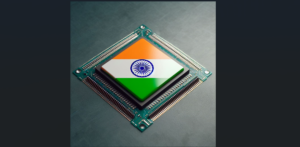Money is pouring into the medtech and health sector, indicate the sheer number of M&As and IPOs in 2020 and 2021.
One of the many sectors that COVID-19 has boosted in the last two years is medical devices and manufacturing or medtech. While growth was visible in the healthcare and medtech sector in the last decade, there is a big disparity between the current demand and supply of medical devices in India, according to India Brand Equity Foundation (IBEF). This disparity has given rise to opportunity.
Read more: Tech Vs. COVID-19: Know your antivirals
This is why several medtech manufacturers (domestic and international) are looking to penetrate the medical devices sector in India.
Recently, Healthium Medtech, a global player in medical devices, announced the successful acquisition of the AbGel gelatin sponge business from Mumbai-based SGK Labs.
AbGel is a recognized brand in the gelatin sponge category and has been used in India since 1980. Healthium’s aim is to further expand the market access of this brand using its wide network of hospitals across India.
The Indian healthtech sector reported seven M&A deals worth over US$ 350 million in 2020; a hike from four deals in 2018 and 2019 each. There is no doubt about the emerging significance of this sector
With a lineage of over 35 years, the company is completely owned by British private equity firm Apax Partners LLP, which has assets in excess of US$ 50 billion. Their product portfolio includes surgical sutures, needles, a patented arthroscopy portfolio, a urology portfolio, hernia meshes, haemostats, gloves, ligation clips, surgical staplers and other wound closure devices. It holds or has applied for 60 patents in India and the US.
The Healthium acquisition is one of many, Indian and global, in recent times that indicate the medtech industry’s resilience in the face of the current ongoing crisis, as well as seeds for long term stability in the medtech sector.
According to Statista, the Indian healthtech sector reported seven M&A deals worth over US$ 350 million in 2020; a hike from four deals in 2018 and 2019 each. There is no doubt about the emerging significance of this sector.
“There has been an over reliance on imported medical devices and consumables with 75-80% devices being imported, the supply chain infrastructure needs greater resilience, manufacturing is very fragmented and there is a strong need to create access to high quality, high precision medical devices in the country,” Anish Bafna, MD & CEO, The Healthium Group, told Financial Express.
2020: A Year of M&A Deals and IPOs
According to Alira Health’s findings from its new 2021 MedTech Contract Manufacturing Report released on March 3, 2021, a record number of M&As are one of the reasons that the medtech industry has remained resilient during 2020. For instance, American medtechs Medtronic and Stryker led all 2020 M&As with four and three acquisitions, respectively.
These trends show that while the pandemic has put up challenges, the long-term growth of the medtech industry is experiencing stability
2020 also saw IPOs and venture fundraising in medtech OEM. Revenue and profits did go down in early 2020. However, by the end of the year, around six large medtech deals to the tune of US$ 1 billion occurred, 16 of them VC backed. Add to that 11 IPOs with median valuations of US$469 million.
These trends show that while the pandemic has put up challenges, the long-term growth of the medtech industry is experiencing stability.
2021: Trend for M&As Continue
Come 2021 and the trend for M&As has continued.
January saw US$10 billion worth of medtech M&A deals turning the first-quarter of 2021 into the most robust since 2016. Dentsply Sirona, STERIS, Phillips, Boston Scientific, and Hill Rom are some of the prominent names in the international M&A scene. A rumour of Permira taking over Livanova is also ripe, a potentially strong one.
That’s a lot of money just till April. Clearly, this space will bring us much more eye-rolling news
April reports two successive mega-acquisitions, a US$12 billion deal by ICON acquiring PRA Health and Thermo Fisher Scientific taking over clinical research organization PPD for US$17.4 billion.
That’s a lot of money just till April. Clearly, this space will bring us much more eye-rolling news.
The Indian Medtech Market
Currently, India is among the top 20 markets for medical devices globally, comprising large multinationals and small and midsized companies. The future of India’s medical devices market looks bright, which was at US$ 11 billion in 2020 and is predicted to reach US$ 65 billion in 2024.
The future of India’s medical devices market looks bright, which was at US$ 11 billion in 2020 and is predicted to reach US$ 65 billion in 2024
From April 2000 to December 2020, FDI inflow in the medical and surgical appliances sector stood at US$ 2.18 billion. However, India has a 75-80% import dependency on medical devices, with exports at INR 14,802 crore (US$2.1 billion) in 2019, which should rise at a CAGR of 29.7% touching INR 70,490 crore (US$10 billion) in 2025, according to IBEF.
The government has announced incentivization plans worth INR 3,420 crore (US$ 4.9 billion) over a five-year period, to be offered to manufacturers only if they invest in set-ups to manufacture key medical devices.
Medtech Investments in India in 2021
March and April saw some moolah entering the medtech market in India as well this year.
In March 2021, a Mumbai-based in-vitro diagnostic company, Transasia Bio-Medical Ltd., announced plans to invest INR 150 crore (US$ 21 million) to launch a manufacturing unit at the Medical Devices Park in Sultanpur, Telangana. Their aim is to manufacture advanced high-tech analysers in the unit not only for biochemistry, immunology, hematology, and molecular testing, but also, for COVID-19, HIV, dengue, and TB testing in domestic and export markets.
Japan-based Omron Healthcare, which launched its Indian wing in 2010, is rumoured to putting up a manufacturing unit in India as part of its retail footprint expansion. By the end of 2021, the company is planning 10 retail outlets in India. A centre in Warangal is in the wings as part of its expansion into Southern India, where it expects 40% of its sales to come from in 2020. Turnover in India is expected to be INR 220 crore (US$ 30 million) during that period.
New Delhi-based SS Innovations, endorsed by the well-known robotic cardiothoracic surgeon, Dr. Sudhir P Srivastava, will commercially establish the first and cheapest robot surgical system in India in the coming 4-6 months. Plans are to manufacture 100 units of its new ‘Mantra’ multi-arm surgical robotics system in 2021, a ‘Make in India’ development for the last three years. The aim is to sell >1,000 units in the next five years.
The sheer amount of M&As and IPOs in the last two years in India and the world indicate an upward trajectory in the medtech sector, promising long term stability to fight future battles
In April 2021, Mumbai’s Medtronic inaugurated a Medtronic Engineering and Innovation Centre (MEIC) in Hyderabad to with an aim to engage India’s big pool of diverse and qualified talent to speed up its groundbreaking work in medtech.
Also in the same month, Indian medtech ResMed expanded ‘AirView for Ventilation’, a cloud-based remote monitoring and management platform in India, which helps healthcare professionals and physicians to remotely track patients through this digital respiratory monitoring solution.
Another announcement in April was Anthill Ventures tie up with Kanfit3D, an Israeli healthtech company, to help them expand in India and manufacture customized medical implants as well as market access to healthcare providers in India.
Read more: Tech Vs. COVID-19: How big tech pitched in to help India during the second wave
The pandemic has pushed the medical devices industry, global and Indian, to take a quick stock of its situation, what with the rise in demand for products such as masks, gloves, personal protective equipment (PPE), diagnostic tests.
The crisis has not only boosted innovation but also financial investments in the sector.
The sheer amount of M&As and IPOs in the last two years in India and the world indicate an upward trajectory in the medtech sector, promising long term stability to fight future battles.












